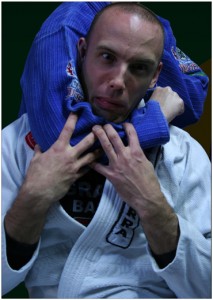 Here’s a quick punch list of notes you may find helpful in preparing for testing. Have questions or other tips not addressed here? Post to the comments below.
Here’s a quick punch list of notes you may find helpful in preparing for testing. Have questions or other tips not addressed here? Post to the comments below.
Before the Test
- Know the material. All of it. All curricula can be found here. The test is not the time to learn that one technique you don’t know. If you don’t know something or don’t feel strong with it, ask before the test. Complete Krav Maga is your best resource outside of class.
- Hydration begins days, not hours, before the test. Be sure you’re drinking lots of water in the days leading up to the test. Steady hydration (as opposed to chugging a gallon of water a couple hours before the test) will not only greatly aid your performance, but you won’t be sloshing around and running to the bathroom every five minutes!
- Feed yourself. You’re going to expend a lot of energy over the course of the 2- to 3-hour test, and there’s nothing worse than hitting the wall. Your body needs to be fueled. You’ll need plenty of fat to keep you running through the duration of the test and stocked glycogen stores to keep your muscles working. I’ve learned to treat nutrition like politics and religion, so I’ll simply say that my recommendations lean paleo: Eat lots of protein and fat from whole foods, load up on sweet potatoes a day or two before and the day of the test. (Although, in boot camp, my drill instructors gave us Snickers bars right before the PFT, and that seemed to work pretty well too!)
- Don’t expend too much energy in the days leading up to the test. Take your intensity down a notch in classes to focus on technique; don’t try out a new barbell complex two days out. Your conditioning won’t be improved in a week, and you don’t want to be sore and exhausted before the test even starts!
- The best conditioning for Krav is Krav. I am frequently asked—and always in the lead-up to a test—how to improve conditioning. Yes, running and circuit training and that new infomercial widget will help, but all that stuff needs to be supplemental to specific training. I do lots of other general S&C training, but there’s no substitute for self-defense drills and pad work. Again, the time for ramping up training volume and intensity is not a week before the test. A smartly periodized program at least 4-6 weeks out is best. If you have time for just one thing, coming to class on a regular basis will do wonders!
- Bring plenty of water and some sort of electrolyte-enhanced drink. If you’re not a fan of HFCS and Yellow #5, coconut water is a good alternative to sports drinks.
- Protect yourself!
- Do not forget groin protection. No groin, no Krav Maga. You are going to be performing self-defense techniques at high intensity, and you and your partner are going to be exhausted. These two factors inevitably lead to accidental thumps to the undercarriage.
- Mouth guards are not a bad idea. Although they’re not required for Level 1 tests, you might want one for the same reasons as groin protection.
- Your partner doesn’t mean to whack you, but… When your partner is doing combatives to finish the fight, keep your hands up, your chin tucked, and cover sensitive targets as needed. Don’t over exaggerate “playing along” with combatives and get popped by accident.
- Don’t screw up the grading sheets. Instant -100 points for you. 😛
- DO NOT QUIT.
- Don’t rush to leave after the test. Take all the time you need to do an appropriate warm-down and stretch.
- Refuel. Your body’s not going to digest your muscles off your bones, but you might feel that way if you don’t pack in some quality nourishment. You can’t go wrong with more meat and sweet potato! And, of course, REHYDRATE.
- Congratulate yourself! No one performs as well as they hoped to. The test is designed that way. Making it through is an accomplishment to be proud of.
The Test
After the Test
photo by Dave Dugdale
 At the end of a BJJ class the other day, I played a game called “Group Fight” that, to me, underscored the inherent risks of fighting on the ground. I wanted to share some observations as they apply to our system of Krav Maga.
At the end of a BJJ class the other day, I played a game called “Group Fight” that, to me, underscored the inherent risks of fighting on the ground. I wanted to share some observations as they apply to our system of Krav Maga. 

